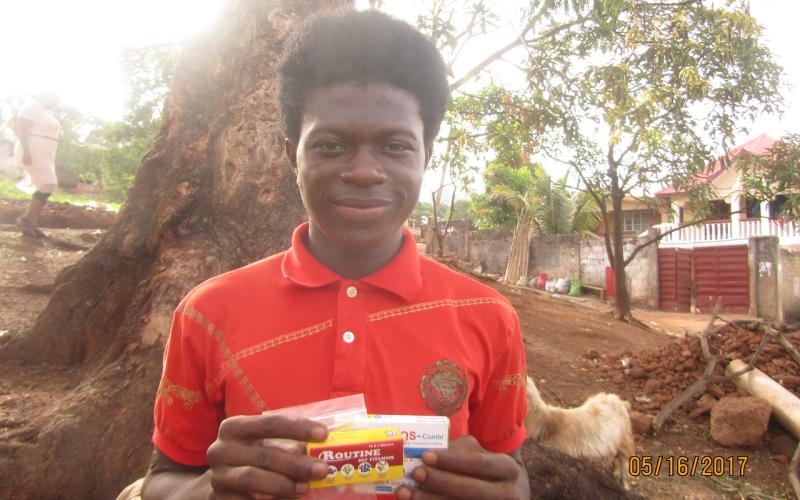
Malaria and Millennium Development Goals
In 2002, the United Nations Secretary-General commissioned the Millenium Project - an endeavor to help support eight Millenium Development Goals to address major humanitarian issues affecting people around the world. In short, the eight goals are:
-
Eradicate extreme poverty and hunger
-
Achieve universal primary education
-
Promote gender equality and empower women
-
Reduce child mortality
-
Improve maternal health
-
Combat HIV/AIDS, malaria, and other diseases
-
Ensure environmental sustainability
-
Global partnership for development
To achieve the Millenium Development Goals, governments, foundations, businesses, and civil society groups have worked together to spur initiatives that have raised billions of dollars to spread awareness of the goals and work toward achieving success benchmarks.
However, while progress has been made, the world is still a long way from marking the issues above off of its to-do list. It is important to maintain awareness of these goals and get more people involved in meeting them.
One way to contribute to several of the goals at one time is to fight malaria in Africa. African populations are the most affected by malaria, with Africa accounting for 85% of malaria cases in the world and 90% of malaria deaths worldwide. Malaria is spread through mosquitoes, which carry blood parasites that can infect a person when he is bitten by the mosquito. Without quick and effective treatment, the parasites multiply in the body and often cause death.
Why Fighting Malaria Contributes to Multiple Millenium Development Goals
The effect malaria has in Africa resonates in many arenas of African life. Therefore, fighting malaria directly correlates to achieving at least four of the eight Millenium Development Goals.
Eradicate Extreme Poverty and Hunger
Malaria is often referred to as a “poor disease.” According to the Earth Institute at Columbia University, Malaria costs Africa about $12 billion a year in economic output. Additionally, annual economic growth in countries heavily burdened by malaria is hampered and in some countries, there is a decline in the economy as a direct result of malarial deaths. The tourism industry suffers because no one wants to visit a place where they might contract the disease; farming and industry suffer because communities lack the proper tools to live and work in high-malaria areas; and families suffer because when someone is sick from malaria, the person cannot work and bring in income.
Fighting malaria and preventing its spread is directly addressing a source of extreme poverty and hunger in Africa. Providing less-expensive preventative treatments early on (as opposed to more expensive medicines to treat the disease after infection) will curb the effects of malaria and the subsequent cycle of poverty.
Reduce Child Mortality
Children under the age of five account for 85% of deaths from malaria. The World Health Organization suggests that in Africa, a child dies from malaria every 30 seconds. In addition to death from malaria, children whose mothers were afflicted with malaria are often anemic, which is a major cause of poor growth and development.
These statistics are heartbreaking, but preventable. Efforts to prevent and treat malaria, which will be examined below, are the first steps to reducing child mortality in Africa.
Improve Maternal Health
Women who are pregnant and also have malaria not only have the risk of dying from malaria, but carry the added danger of having a child with anemia and other complications. Also, as explored in multiple sociological studies, the health of women and mothers in Africa can directly impact the community’s economic vitality.
Maternal health can be improved with the efforts to fight malaria explained below.
Combating HIV/AIDS, Malaria, and Other Diseases
How can we prevent and treat malaria in Africa? We know that malaria plays a role in multiple humanitarian and economic concerns in Africa, so it makes sense to invest in finding ways to combat the disease.
One of the simplest and effective methods is the use of insecticide-treated mosquito nets. Most mosquito bites, which spread malaria, happen at night when the person is sleeping. The use of insecticide-treated mosquito nets has been shown to greatly reduce the occurrence of mosquito bites, and therefore malaria. Unfortunately, as Unicef points out, “The universal use of insecticide-treated bed-nets can reduce episodes of illness by 50% in areas of high transmission, yet fewer than 2 % of African children sleep under a net.”
Treatment of malaria using anti-malarials and Artemisinin-based Combination Therapy (ACT) can help people to survive the disease after they contract it. The cost of antimalarials and ACTs is not astronomical, but for many people in Africa, especially those living in poverty, the cost is prohibitive.
DevelopAfrica - Malaria Prevention
Explore this site further to learn how you can contribute to providing insecticide-treated nets and preventative anti-malaria tablets to communities in Africa. DevelopAfrica strive to provide insecticide treated nets and anti-malarials to the people of Africa, and you can help. As mentioned above, contributing even small amounts to the fight against malaria can make an impact on multiple Millenium Development Goals, not to mention will greatly benefit citizens living in poverty-stricken African communities.
Donating money to DevelopAfrica is incredibly easy. You can donate funds directly, you can urge businesses in your community to become sponsorship partners, and you can even arrange for your American Express points or Ebay sales to go toward fighting malaria in Africa. No matter what path you choose, fighting malaria in Africa is an important and necessary humanitarian goal.
Written by Kelly Fox
Sources:
http://www.afro.who.int/en/clusters-a-programmes/dpc/malaria/features/2287-10-facts-on-malaria-in-africa.html
developafrica.org
www.earth.columbia.edu/articles/view/41
http://www.un.org/millenniumgoals/bkgd.shtml
www.unicef.org/media/media_20475.html

